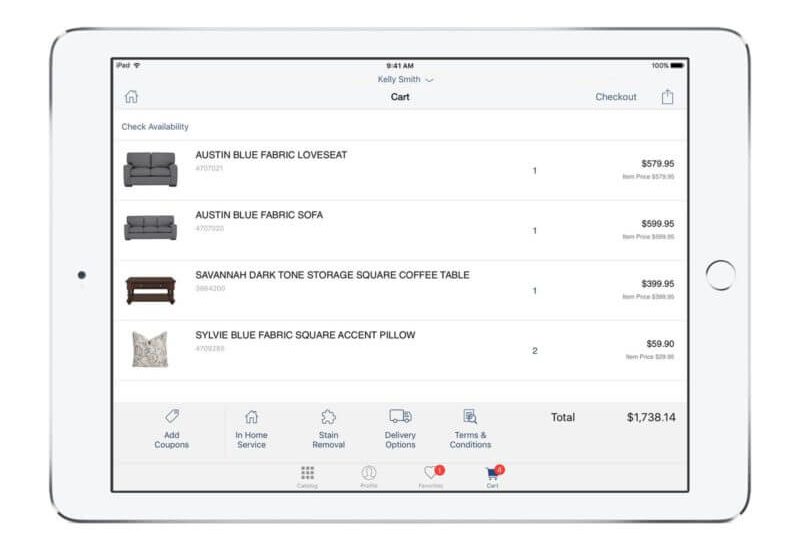
Whether you see what’s happening right now with retail store closures as a right-sizing or a harbinger of the “retail apocalypse,” there’s no question that traditional retail is under pressure. A much-debated question is whether technology can solve some of the industry’s challenges or whether they’re more structural in nature.
A new case study involving Florida-based City Furniture suggests the answer is yes, at least in some circumstances. To make sales and service more efficient and address some in-store pain points, the privately-owned regional chain worked with Apple and IBM to develop three integrated iOS apps (for iPad) for in-store sales associates.
The apps aim to streamline, personalize and remove friction from the sales and payment processes. According to the company’s PR materials:
Built under the Apple-IBM partnership, the finance app enables store associates to find recommended products, for example, a couch that would match a particular table; and the ability to make a ‘wish list’, where store associates can receive a notification when the item a customer was looking for while in the store but could not buy at the time has, for example, gone on sale. Additionally, the finance app enables customers to be pre-approved for furniture right from the store floor.
I received an extensive tour of the main app (above), which looks and functions much like a consumer-facing e-commerce experience. It contains a wealth of information about City Furniture inventory and associated products. Accordingly, the app can make less experienced salespeople more knowledgeable and effective on the sales floor.
City Furniture representatives told me over the phone that it took roughly six months to develop the apps, followed by eight weeks of testing and training. All of the company’s showrooms and sales associates are now equipped with iPads featuring these apps.
All sales and payment functions can be accomplished on the iPad without the associate having to leave the customer or the floor. The new apps and sales process launched in February, and City Furniture employees reportedly have been very receptive.
City Furniture added that the apps have helped increase average order value by five percent, resulted in fewer errors and better overall customer satisfaction. As a result, there has been 60 percent less discounting to placate irate customers.
Even if customers don’t buy during a store visit, the sales associate (using the apps) can capture preferences and other information that can be subsequently used to remarket to the customer in email or via other channels.
While the full impact of the new process and technology integration won’t be fully understood for at least a little while, preliminary indicators are all positive. And even marginal improvements in sales productivity and customer satisfaction more than justify the cost and time involved in developing the apps.
About The Author

Popular Stories
Related Topics
